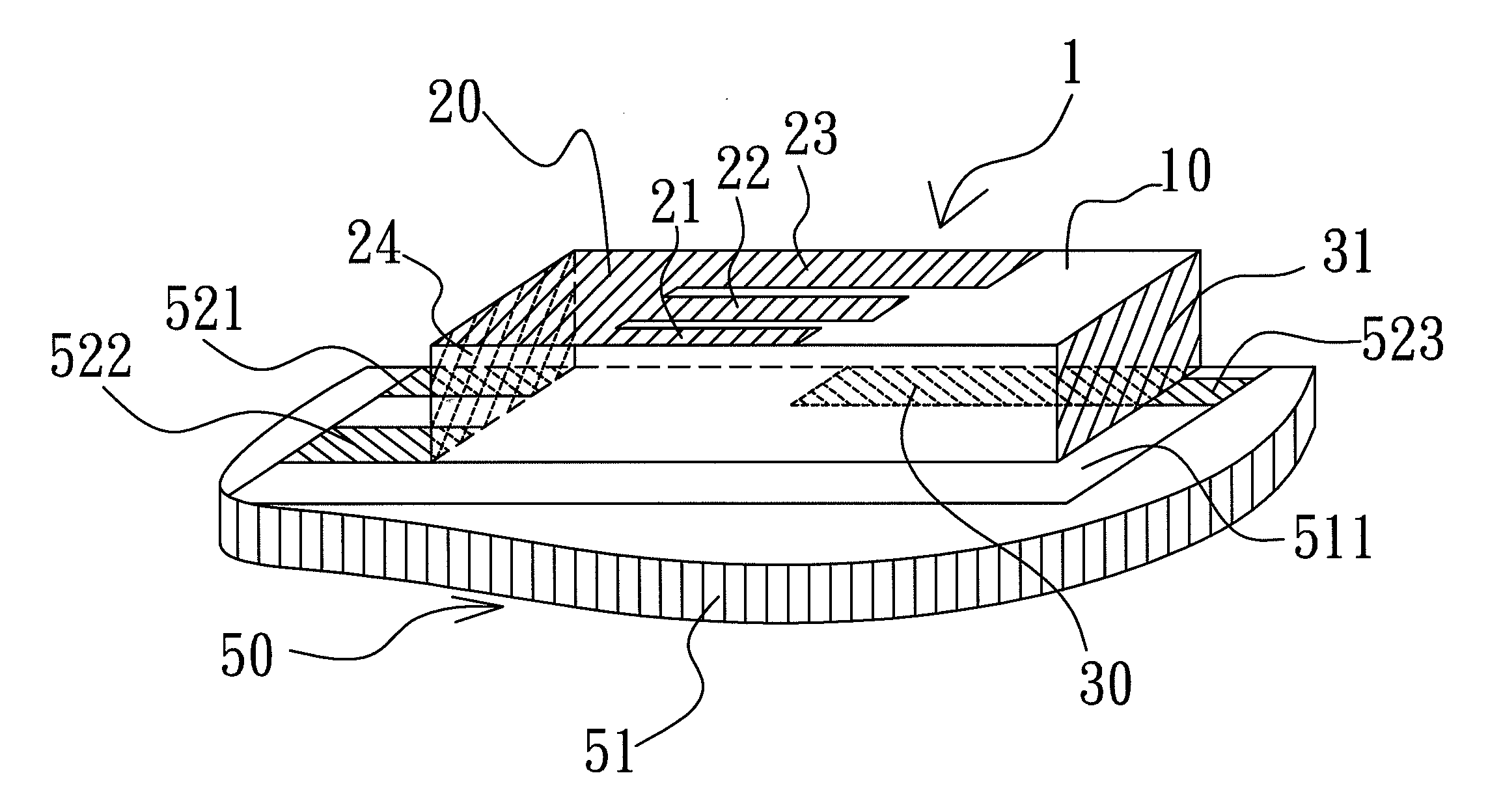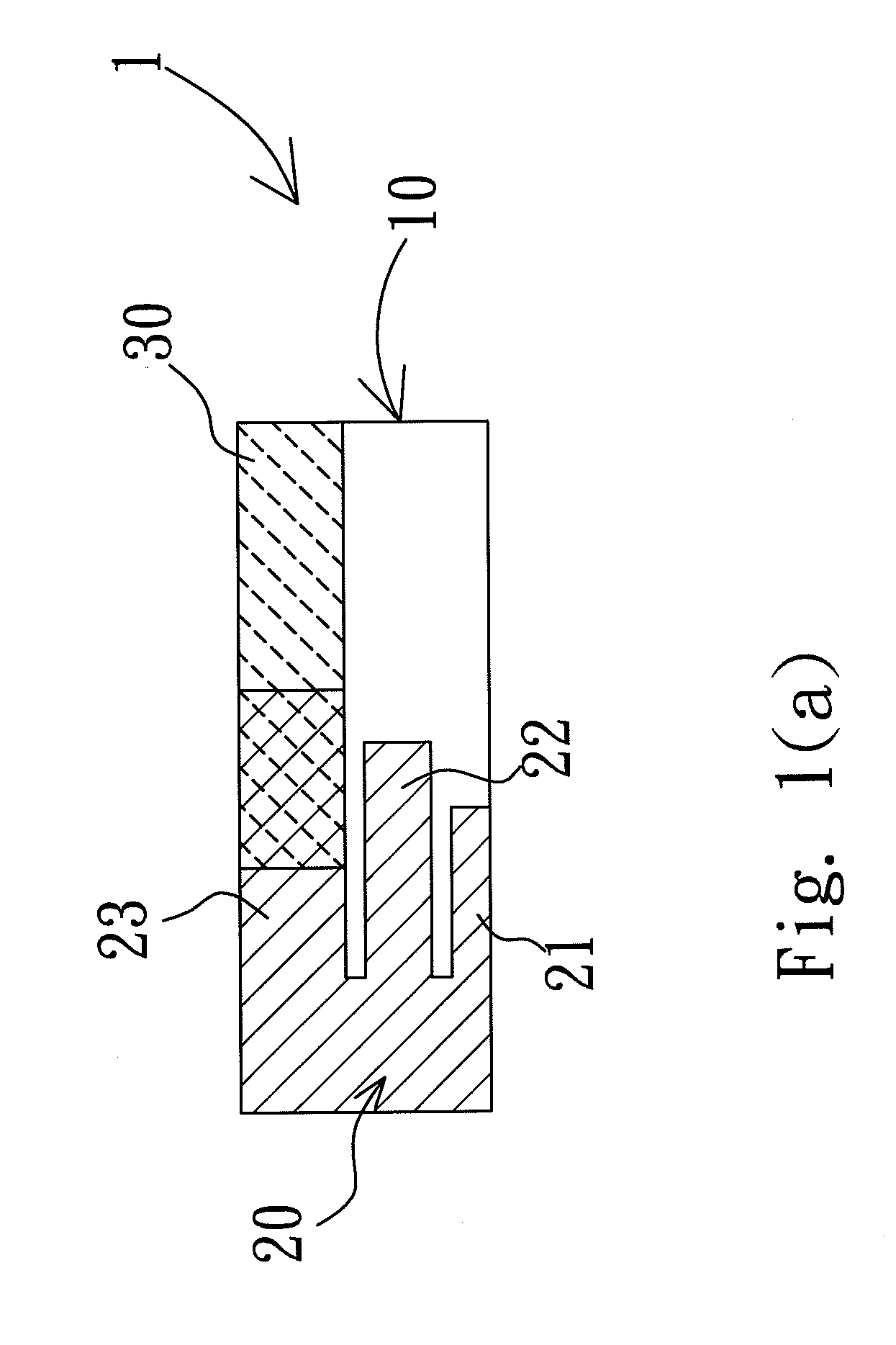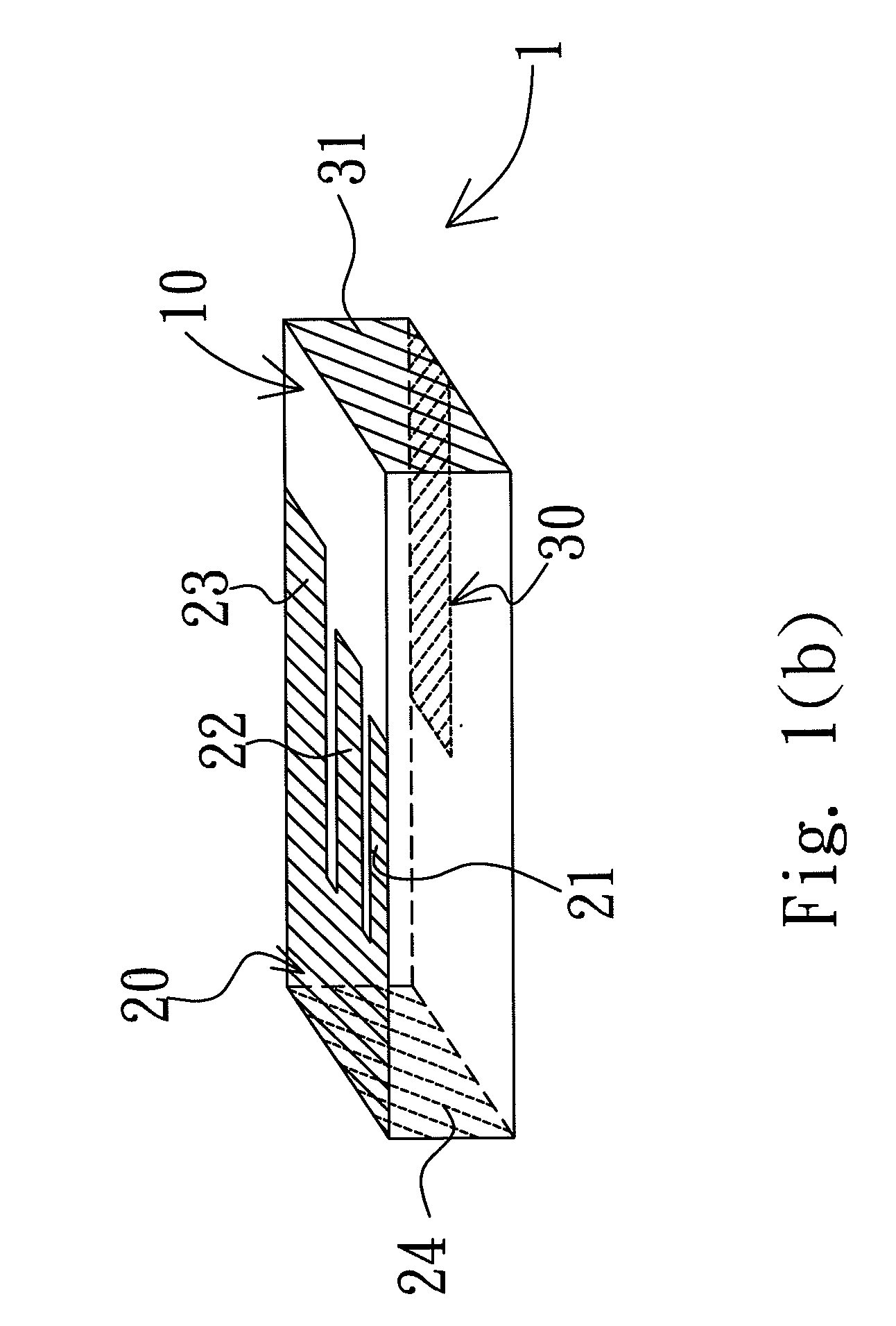Miniature multi-frequency antenna
a multi-frequency antenna, miniature technology, applied in the direction of antenna details, electrically short antennas, antennas, etc., can solve the problem of resonant frequency deviation of antennas, and achieve the effect of reducing the size of the antenna and less mutual interferen
- Summary
- Abstract
- Description
- Claims
- Application Information
AI Technical Summary
Benefits of technology
Problems solved by technology
Method used
Image
Examples
first embodiment
Refer to FIG. 1(a) and FIG. 1(b) for a top and a perspective view of a miniature multi-frequency antenna according to the present invention. In the following mentioned embodiments, identical number will be used for similar element. As shown in FIG. 1(a) and FIG. 1(b), a miniature multi-frequency antenna 1, comprises a substrate 10; a signal electrode 20 and a ground electrode 30. The substrate 10 has a top surface, a bottom surface and two end surfaces. The signal electrode 20 has three branches 21, 22, and 23, is disposed on the top surface of the substrate 10 and connects with a first terminal electrode 24 that is mounted on one end surface of the substrate 10. The ground electrode 30 is disposed on the bottom surface of the substrate 10, with its width roughly as same as that of branch 23 and is located below and connects with a second terminal electrode 31 that is mounted on the other end surface of substrate 10. As shown in FIG. 1(a), the ground electrode 30 is partially overla...
third embodiment
Refer to FIG. 4(a) and FIG. 4(b) for a top and a bottom view, respectively, of a miniature multi-frequency antenna according to the present invention. The circuit board 50 is formed of substrate 51 and a circuit (not shown) that is arranged on the substrate 51. The circuit board 50 comprises a clearance region 511 without deploying the circuit on substrate 51. In this embodiment, the clearance region 511 of the circuit board 50 is utilized as a substrate 10. While forming circuit on the circuit board 50, a signal electrode 20 and a ground electrode 30 are formed, respectively, on the top and bottom surface of the substrate 51 by utilizing electroplating, thick film process, thin film process, or by adhering conductive sheets. With this kind of arrangement, the volume occupied by antenna 1 becomes indiscernible, thus not only overcomes the shortcomings of the prior art but also reduces the number of manufacturing processes required in integrating the antenna 1 and the circuit board 5...
fourth embodiment
Refer further to FIGS. 5(a), 5(b) and 6 for a top, a bottom and a cross section view along A-A′ line in FIG. 5(a) and FIG. 5(b) of a miniature multi-frequency antenna according to the present invention. This embodiment is deployed by integrating antenna with a multilayer printed circuit board. As shown in FIG. 6, the substrate 51 of the circuit board 50 is a multilayered structure has multiple stacked substrate units 512 and 513. A clearance region 511 without disposing circuits, ground plane or any other electronic components, is reserved on the circuit board 50 when deploying circuits on the substrate 51. Two conductive through holes 514 and 515 are separated by a pre-determined distance and are provided in the clearance region 511 of the substrate 51 for connecting circuits on various layers. The miniature multi-frequency antenna 1 in this embodiment also utilizes the clearance region 511 of the substrate 51 as substrate 10. As such, along with the steps of manufacturing circuits...
PUM
 Login to View More
Login to View More Abstract
Description
Claims
Application Information
 Login to View More
Login to View More - R&D
- Intellectual Property
- Life Sciences
- Materials
- Tech Scout
- Unparalleled Data Quality
- Higher Quality Content
- 60% Fewer Hallucinations
Browse by: Latest US Patents, China's latest patents, Technical Efficacy Thesaurus, Application Domain, Technology Topic, Popular Technical Reports.
© 2025 PatSnap. All rights reserved.Legal|Privacy policy|Modern Slavery Act Transparency Statement|Sitemap|About US| Contact US: help@patsnap.com



